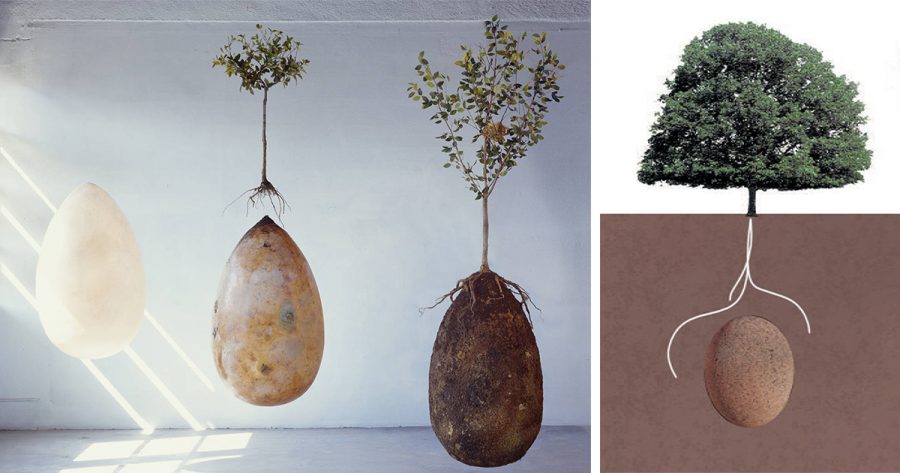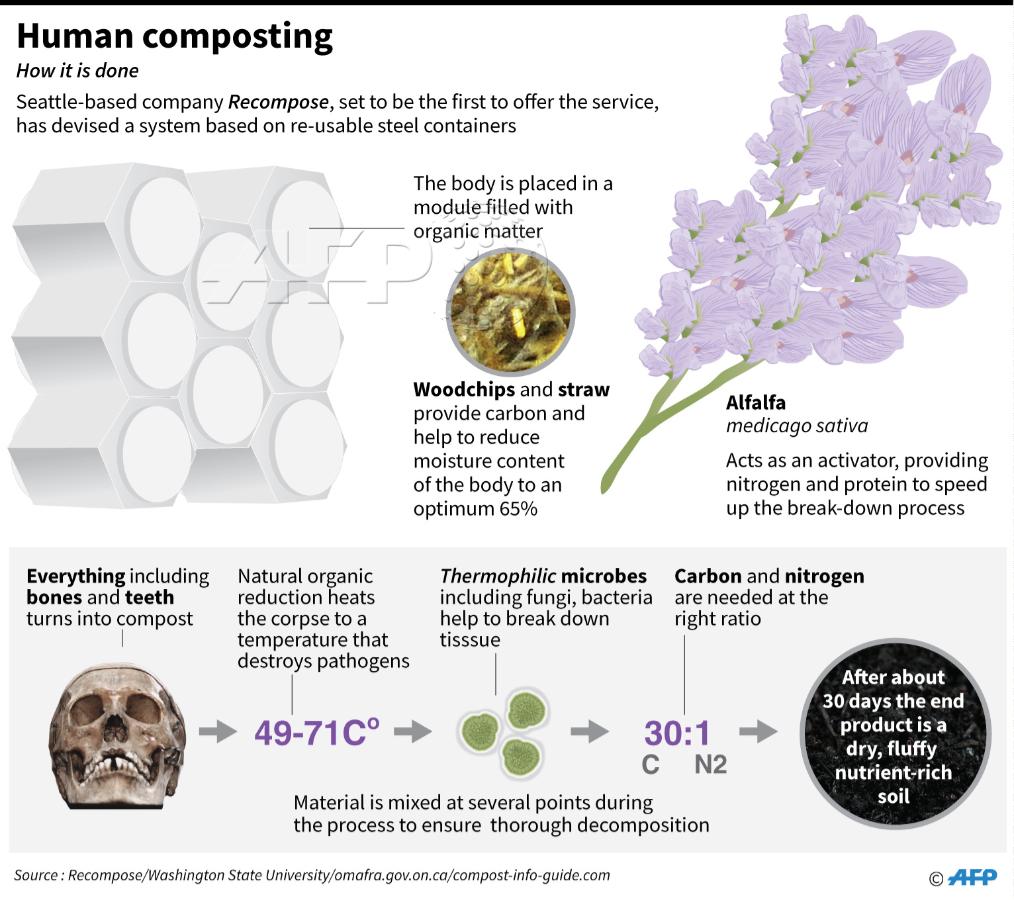Returning to Nature: Burials Reimagined
August 26, 2021
Humans have always had a fascination with death, and evidence shows that even as far back as 80,000 years ago, people buried their dead relatives. With the growing awareness regarding how our actions effect us on a global scale, such as global warming, scientists and citizens alike have been searching for revolutionary ways to continue human traditions through new eco-conscious techniques. In the past few years, humans have discovered new ways that people can help the Earth-postmortem.
One new way is the concept of body composting. For some, this may seem like something out of a horror movie, but as Funeral Consumers Alliance Director Joshua Slocum said in a statement to The Seattle Times, “Disposition of the dead, despite our huge emotional associations with it, is not (except in very rare cases) a matter of public health and public safety. It’s a real tough thing for people to get their minds around, and a lot of our state laws stand in the way of people returning to simple, natural, uncomplicated, inexpensive ways of doing things.” Body composting is the process in which bodies are placed in a container with wood chips, straw, and alfalfa. Alfalfa functions to increase the decomposition process. In this process, everything, including teeth and bones, are decomposed through natural heat that is released and heat-loving microbes that help to break down the body into vital nutrients that help plants thrive. Traditional burials cause embalming chemicals to seep into the groundwater, and cremation often causes the release of harmful chemicals, like carbon dioxide and mercury, into the atmosphere. The last thing the Earth needs during this time of global warming is more chemicals that can damage the ozone layer. Additionally, naturally decomposing bodies can provide useful nutrients that can support the ever-growing demand for produce. According to an article by EcoWatch, Washington was the first state to legalize human composting in May 2019. This legislation allowed people to have the option to become naturally decomposed after May 2020, but has regained recent internet attention after an August 2021 article by CalMatters discussed the possibility of California legalizing human body composting.

Some people want their remains to be launched into space, others want a traditional burial ceremony, and now a new form of burial is allowing people to become one with nature-literally. Capsula Mundi is a project started by Anna Citelli and Raou Bretzel in which the ashes of a loved one are placed into the Capsula Mundi biodegradable urn, and a tree (chosen by the deceased prior to their death) is planted above the pod, providing nutrients to the tree. The goal of Capsula Mundi is to translate this concept into burials for the body as opposed to simply cremated. The problem with this concept is that in many countries, like Italy (where the project began), this type of burial is illegal, and only the use of cremated remains is allowed. However, there is hope for full-body Capsula Mundi burials in the near future, with many English-speaking countries, including America, supporting the idea of “green cemeteries,” in which bodies are buried without the use of harsh embalming chemicals and invasive burial techniques. This new eco-conscious trend is destigmatizing the concept of death and its relationship with nature. Citelli and Bretzel hope to help change the way people think about death, allowing them to let go of their loved ones in a way that benefits the Earth and focuses less on body preservation.


Eco-conscious burials are being called the future of funerals. Would you want an eco-conscious burial? Do you see it as morally and religiously insensitive? The public’s response to these questions will ultimately decide how we as humans handle death in the midst of growing ecological concerns.


